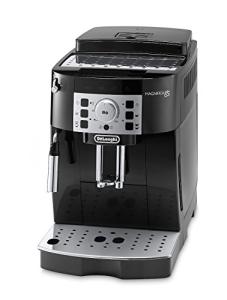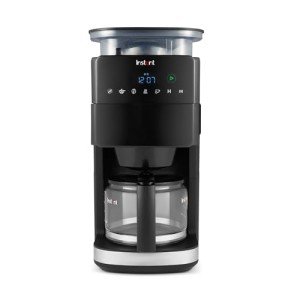Esta empresa no tiene puestos de trabajo activos
0 Review
Rate This Company No hay revisiones todavía
About Us
What’s The Current Job Market For Professional Espresso Machine Professionals Like?

The Complete Guide to Professional Espresso Machines
Espresso machines characterize the enthusiasm for coffee, merging art and science to produce a gratifying beverage experience. From dynamic coffeehouse to high end restaurants, these machines play a necessary role in producing rich, focused coffee shots. This article aims to provide an in-depth understanding of professional espresso machines, covering their types, functionalities, upkeep, and answers to frequently asked questions.

Table of Contents
- Introduction of Professional Espresso Machines
- Kinds Of Professional Espresso Machines
- 2.1. Manual Espresso Machines
- 2.2. Semi-Automatic Espresso Machine Online Machines
- 2.3. Automatic Espresso Machines
- 2.4. Super-Automatic Espresso Machines
- Secret Features to Consider
- Maintenance Tips for Longevity
- Regularly Asked Questions
- Conclusion
1. Introduction of Professional Espresso Machines
Professional espresso machines are effective equipment developed to draw out espresso effectively while making sure consistency and quality. Unlike home machines, these units are built for high-volume usage, typically with advanced functions to accommodate sophisticated brewing methods.
2. Types of Professional Espresso Machines
Picking the ideal type of espresso machine depends significantly on the requirements of the facility. Below is a breakdown of the numerous types available in the market.
| Type | Description | Suitable For |
|---|---|---|
| Manual Espresso Machines | Needs barista ability; users manually control the extraction procedure. | Artisan cafe and enthusiasts. |
| Semi-Automatic Machines | Offers some automation; users control water circulation. | A lot of coffee bar and restaurants. |
| Automatic Machines | Automatically manages water quantity; user sets dose. | Busy cafes or establishments. |
| Super-Automatic Machines | Totally automated, grinding, developing, and cleansing with a tap. | High-volume settings with minimal personnel. |
2.1. Manual Espresso Machines
Manual espresso machines are classic and popular among perfectionists who enjoy tweak the Espresso Pod Machine-brewing procedure. It requires substantial skill, as the operator needs to by hand manage the water flow and pressure.
2.2. Semi-Automatic Espresso Machines
Semi-automatic machines are the most widely used in cafes and cafe. They provide user control over the water circulation, enabling baristas to develop consistently excellent espresso shots while still having control over brewing variables.
2.3. Automatic Espresso Machines
In automatic machines, the brewing process is automated. The machine fills the necessary water quantity for each shot, permitting high effectiveness in busy environments. Although it supplies less versatility in brewing methods, the consistency is unrivaled.
2.4. Super-Automatic Espresso Machines
Super-automatic machines take convenience to the next level by managing every action of the coffee-making process. From grinding the beans to frothing the milk, these machines are ideal for high-volume cafes where speed and effectiveness are critical.
3. Secret Features to Consider
When purchasing a professional espresso machine, it’s vital to consider the following functions:
| Feature | Significance |
|---|---|
| Boiler Type | Single boiler vs. dual boiler. Dual boilers allow developing and steaming simultaneously. |
| Group Heads | Multi-group heads deal with several beverages at the same time, increasing performance. |
| Pressure Control | Constant pressure is essential for quality extraction. |
| Steam Wand | Quality frothing capabilities for milk-based drinks. |
| Alleviate of Cleaning | Detachable parts can save time on maintenance and make sure health. |
| Toughness | Look for sturdy materials that will withstand consistent use. |
| Size | Must fit the intended area while accommodating user needs. |
4. Maintenance Tips for Longevity
Keeping a professional espresso machine is essential for ensuring durability and optimum performance. Here are some vital upkeep pointers:
- Daily Cleaning: Clean the group heads and portafilters to remove coffee oils and residues.
- Weekly Backflush: Use a blind filter to backflush the machine, keeping the internals clean.
- Descale Regularly: Pinto your machine’s guidelines for descaling frequency depending upon your water hardness.
- Check Seals and Gaskets: Replace used parts to prevent leaks and keep pressure.
- Check Water Quality: Use filtered water to decrease mineral buildup that can harm the machine.
- Professional Maintenance: Schedule professional servicing to make sure all systems run effectively.
5. Frequently Asked Questions
Q1: How much does a professional espresso machine cost?A1: The cost of a professional espresso machine can vary from ₤ 2,000 to over ₤ 20,000, depending upon the type, brand name, and functions. Q2: What is the best machine for
a small coffee shop?A2: Semi-automatic machines are frequently best
for Small Espresso Machine cafe because they strike a balance in between control and ease of use. Q3: How long do professional espresso machines last?A3: With proper upkeep, a professional espresso machine can last
anywhere from 5 to 15 years. Q4: What type of training does a barista need to run an espresso machine?A4: Baristas ought to find outthe technical aspects of espresso extraction, milk frothing, and basic machine upkeep. Q5: Are super-automatic machines worth the investment?A5: For high-volume facilities with limited staff, super-automatic machines can significantly
reduce labor while guaranteeing consistent quality. 6. Conclusion Investing in a professional espresso machine is crucial for any coffee company intending to deliver premium drinks. Comprehending the types available, along with their functions and



